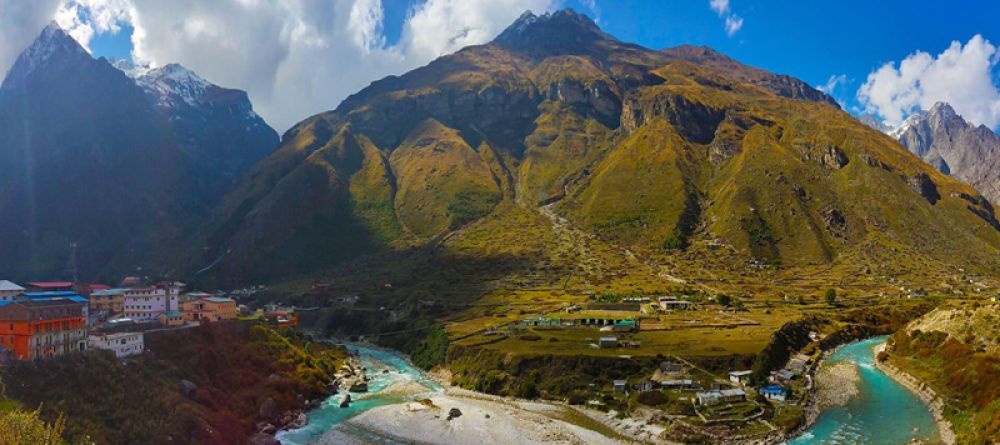

Joshimath, also known as Jyotirmath, is a quaint town nestled in the Chamoli district of Uttarakhand, India. It's a revered place, known for its ancient temples and as a gateway to several pilgrimage sites and trekking trails in the Garhwal region of the Himalayas. The town holds significant spiritual value and is considered sacred in the Hindu religion.
The history of tourism in Joshimath is inseparable from its religious importance. According to legends, the town was established by Adi Shankaracharya, a great Indian philosopher and theologian who played a pivotal role in the consolidation of the Advaita Vedanta. In the 8th century, Adi Shankaracharya founded one of the four cardinal pīthas (monasteries) here, which has been a magnet for pilgrims over the centuries.
The presence of ancient temples like Narsingh Temple and Shankaracharya Math has made Joshimath a significant spiritual center for thousands of years, attracting devotees and spiritual seekers. Consequently, the flow of pilgrims throughout history has been the bedrock of tourism in this town.
With the growth of religious tourism, Joshimath also evolved as a hub for adventure enthusiasts as it serves as the base for trekking to famous spots such as Valley of Flowers and Hemkund Sahib. Further, it is the point of transit to the sacred shrine of Badrinath during the annual pilgrimages known as the Char Dham Yatra.
The development of adventure tourism brought about investments in infrastructure like lodging and transportation facilities, catering to trekkers, mountaineers, and nature lovers. The region's awe-inspiring natural beauty and the growing popularity of the Himalayas for outdoor endeavours have significantly contributed to the influx of tourists to Joshimath.
In recent years, Joshimath has witnessed modern developments while maintaining its ethereal charm. The introduction of the Auli Ski Resort and the Joshimath-Auli Gondola, Asia's longest cable car route, has opened a new frontier for winter sports enthusiasts, making it a popular destination for skiing and snowboarding.
The Government's push for better connectivity, such as the construction of all-weather roads, has further made Joshimath more accessible, facilitating the growth of hospitality and services sectors. Eco-tourism has also gained momentum, with increased awareness about preserving the pristine environment of the Himalayas.
Despite the growth in tourism, Joshimath faces challenges like ecological sustainability and the preservation of its cultural heritage. The region experiences pressure from the increasing number of visitors, environmental changes, and recent concerns about land subsidence.
Authorities and local communities have been striving to strike a balance between tourism development and conservation. Efforts towards sustainable tourism practices are being prioritized to ensure Joshimath can continue to be a beacon for pilgrims and nature lovers for generations to come.
Today, Joshimath's tourism tells a story of reverence, adventure, and the relationship between mankind and nature. It continues to be an epitome of spiritual solace and thrilling adventures, attracting a diverse range of tourists from all corners of the world.